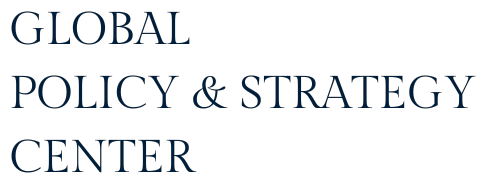Within our rapidly evolving global landscape, diplomacy is undergoing a profound transformation powered by technology. The intersection of international relations with cutting-edge technology is significantly altering the way nations engage, negotiate, and cooperate. From the realms of digital diplomacy to cybersecurity measures, this article explores the pivotal role of technology in shaping the new frontier of international relations.
The Digital Diplomacy Revolution
Diplomacy, traditionally conducted behind closed doors and through official channels, has taken a leap into the digital realm. In an era where information is shared instantaneously, digital diplomacy has become a cornerstone of modern international relations. Social media, web platforms, and digital communication tools have given diplomats a new set of tools to engage with foreign governments and global audiences.
Digital diplomacy facilitates real-time communication and offers a direct channel for governments to convey their policies and positions. Twitter, for instance, has become a platform for heads of state to address the world directly, making diplomacy more accessible and transparent. The ability to disseminate information swiftly has also been instrumental in crisis management and disaster response.
The Role of Cybersecurity
With technology integration comes the ever-present concern of cybersecurity. The interconnectedness of nations through digital means has opened new avenues for both collaboration and conflict. Ensuring the security of digital infrastructure and sensitive data is paramount in maintaining international stability.
Nations must navigate a delicate balance between protecting their own digital interests and respecting the digital sovereignty of others. Cyberattacks, espionage, and misinformation campaigns are new tools in the arsenal of international relations, making robust cybersecurity strategies essential for governments.
Economic Diplomacy in a Digital World
The global economy is now more interconnected than ever. Trade negotiations, economic agreements, and international commerce are increasingly conducted through digital platforms. Technological advancements have accelerated economic diplomacy by streamlining transactions and enabling nations to forge economic partnerships more efficiently.
The rise of cryptocurrencies and blockchain technology, for example, has the potential to revolutionize the financial landscape and create new opportunities for international economic cooperation. However, with these innovations come regulatory challenges and the need for international collaboration to harness their potential.
Global Collaboration in the Digital Age
Collaboration is at the heart of international relations, and technology has facilitated unprecedented global cooperation. Multinational organizations, such as the United Nations, the World Health Organization, and various regional bodies, leverage technology to foster dialogue and address global challenges.
International crises, such as the response to global health emergencies, rely on data-sharing, coordination, and the application of cutting-edge technology for effective responses. The COVID-19 pandemic demonstrated the crucial role of technology in global healthcare and public health diplomacy.
Challenges and Ethical Considerations
As technology continues to advance, nations face ethical and legal questions in the realm of international relations. Issues such as privacy, surveillance, data protection, and intellectual property rights require careful consideration.
The responsible use of technology in international relations also entails mitigating the digital divide, ensuring that all nations have equitable access to technological advancements. Bridging this gap is essential in maintaining global stability and preventing inequalities in the digital era.
Conclusion: The Future of Tech-Driven Diplomacy
Technology and diplomacy are now inseparable, with technology serving as a catalyst for innovation and global collaboration. The new frontier in international relations presents both opportunities and challenges. As we navigate this evolving landscape, adapting to the digital age and crafting policies that balance technological advancement with ethical considerations is key to shaping the future of international diplomacy.
In an interconnected world, technology and diplomacy have converged to become powerful tools in fostering understanding, cooperation, and peace among nations. It is through responsible and strategic technological integration that we can harness the potential of this new frontier in international relations.
For more insights on the intersection of technology and diplomacy, we invite you to explore our research and policy recommendations. Together, we can chart a course towards a more connected, secure, and prosperous global community.
